Happy International Women’s Day, everyone!
You can find a programme of events sponsored by the Student Union, engage with inspiring stories from the Lincoln International Business School, or read a book about women’s lives, past and present from the library.
March is Women’s History Month and the library will be celebrating with a series of posts on using our resources to study women’s history. We would love to hear your comments and questions about the posts: please tweet us @GCWLibrary, email us at library@lincoln.ac.uk, or tell us your thoughts in the comments section at the end of the post.
This first post will cover the books and chapters you can find using our e-book databases. You can access some of our ebooks via our the ‘find books’ search on our main page: just select ‘electronic resource’ to focus on e-books.
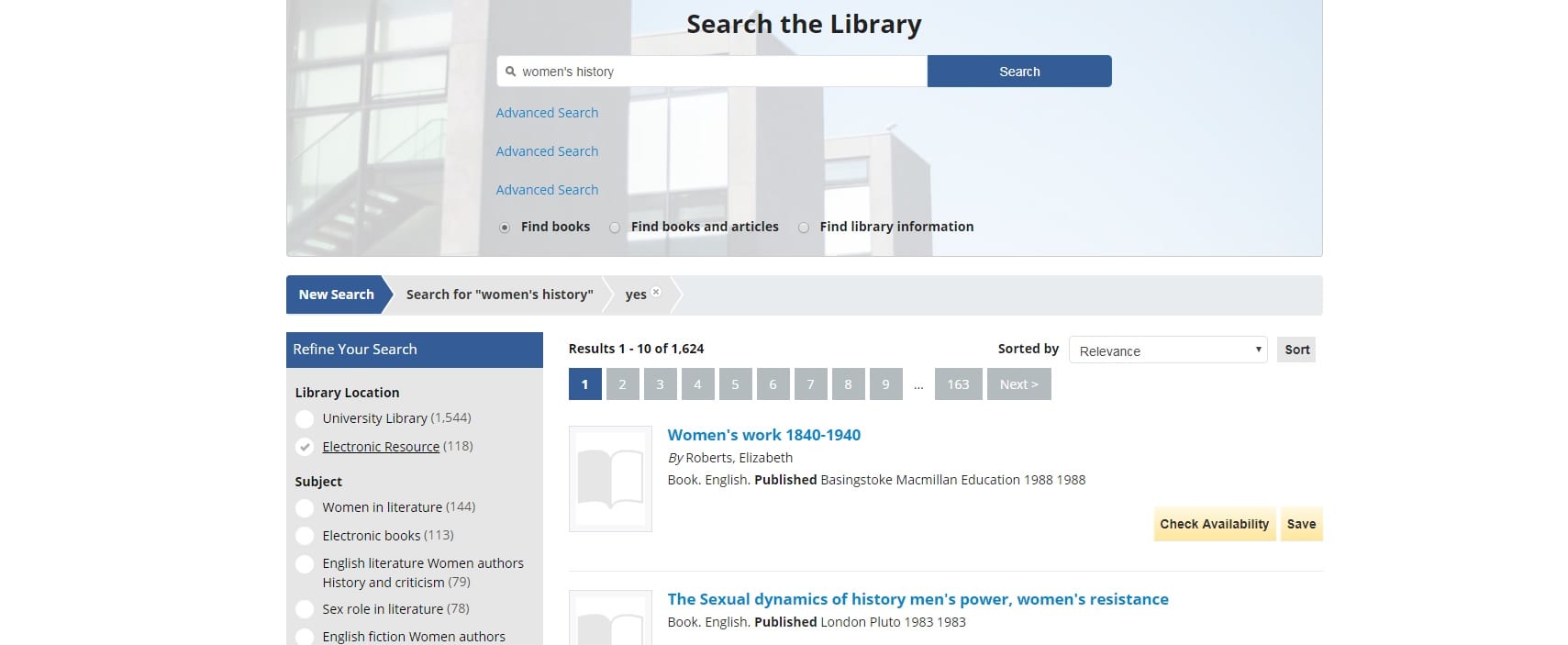
To gain access to even more e-books, it’s best to search our e-book databases directly. To access these databases, go the main library page, library.lincoln.ac.uk, and login. Under the ‘Find’ tab, click on databases. You can filter the databases by type into order to focus on e-books.
A great place to start your search for e-books on women’s history is Ebook Central, a large collection of academic books from all over the world. The best way to find books in e-book central is by keyword searching. For instance, if you are looking for books on Native American women, a keyword search for those terms will bring up books with those words in the title or description. Keywords can be as specific or general as the information you are looking for. If you are simply browsing, going into the advanced search menu and focusing on a particular subject can be a great way to start your research.
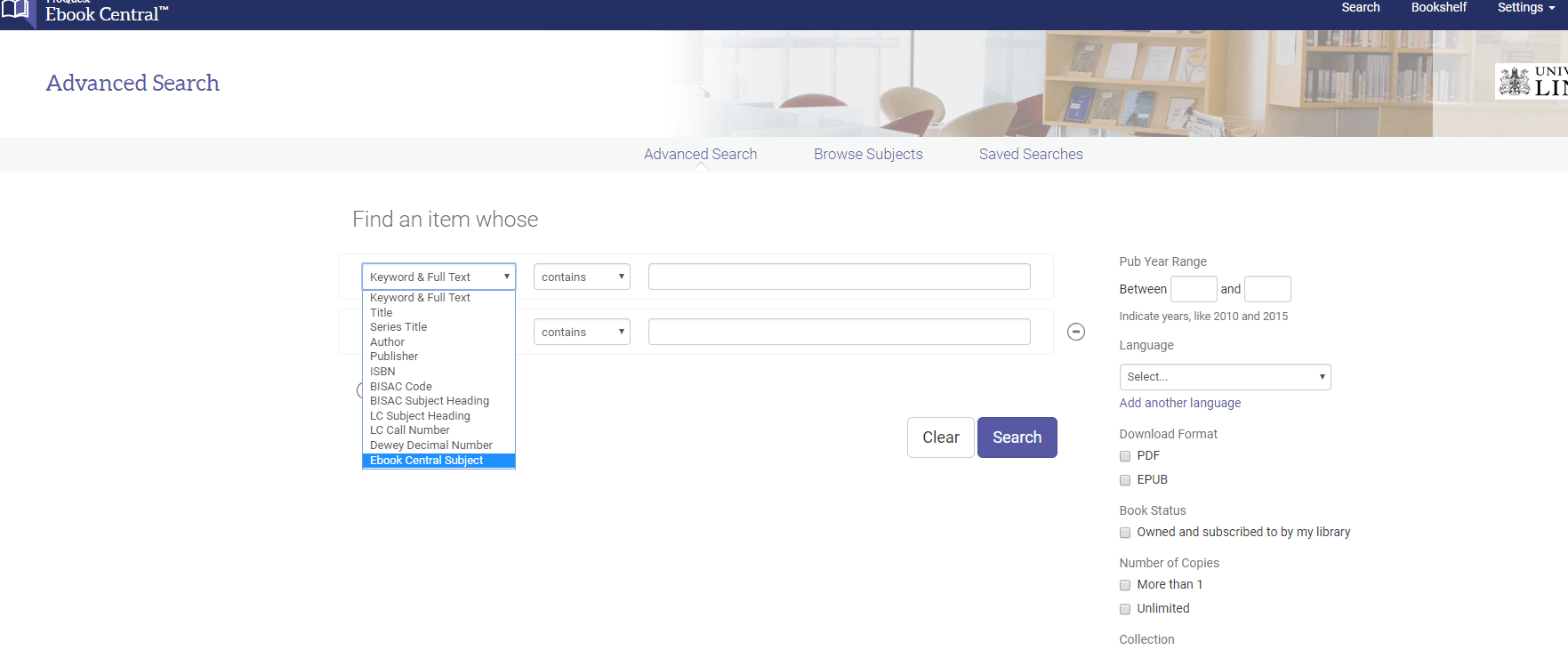
When you find a book you are interested in, you can click on the record to find more information about it. Subject to publisher’s permissions and copyright law, it is possible to print excerpts from a book and all Ebook Central books have a description section which can help you decide whether a book is useful for your study of women’s history.
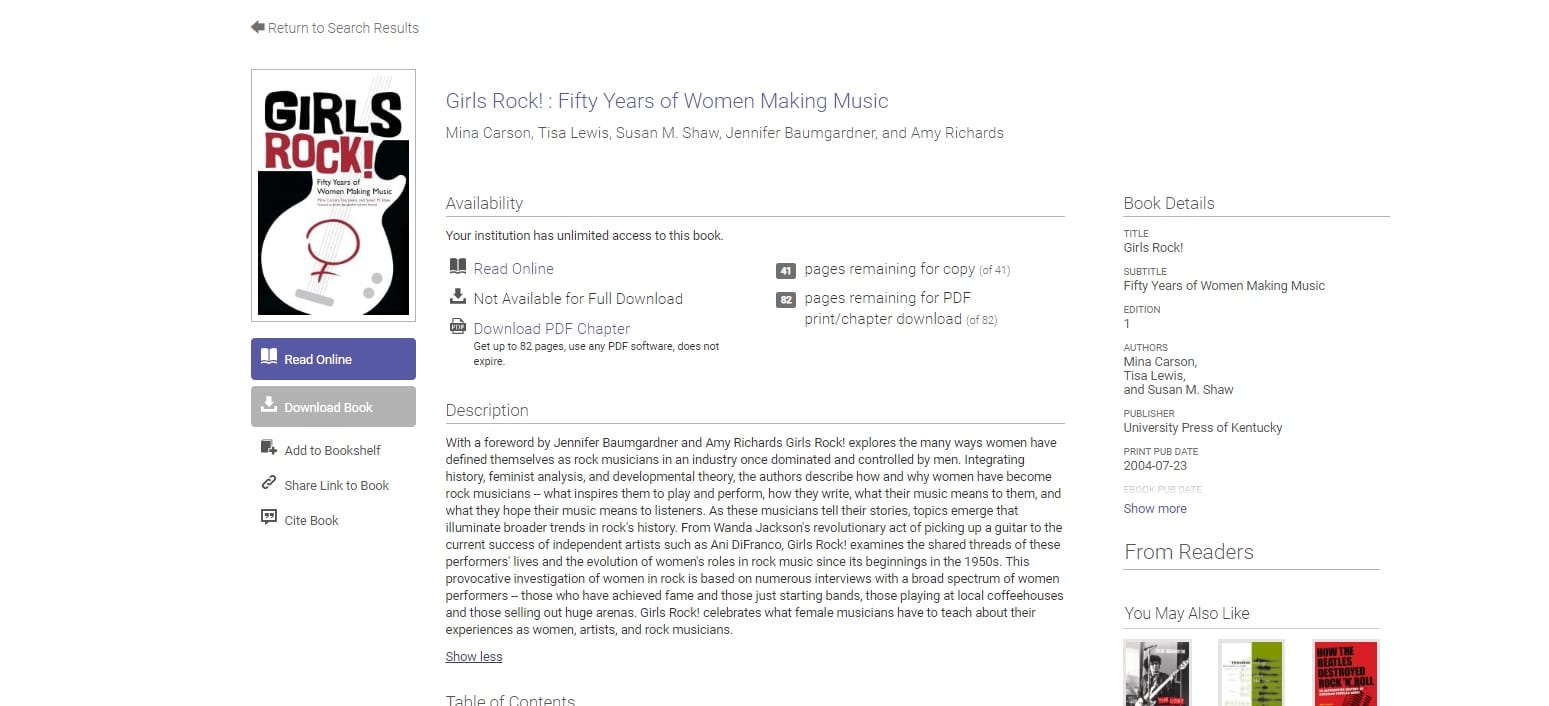
Another database to check out to continue your reading is EBSCO. Most EBSCO books can be downloaded as full-text pdfs, making this database a great one to explore if you might be doing some of your reading offline. An advanced search in this database allows you to focus on specific subjects: women, places and time periods of interest for your studies. You can also do a general subject search, such as the one we’ve done for ‘women’ in order to get a sense of the range of books available:
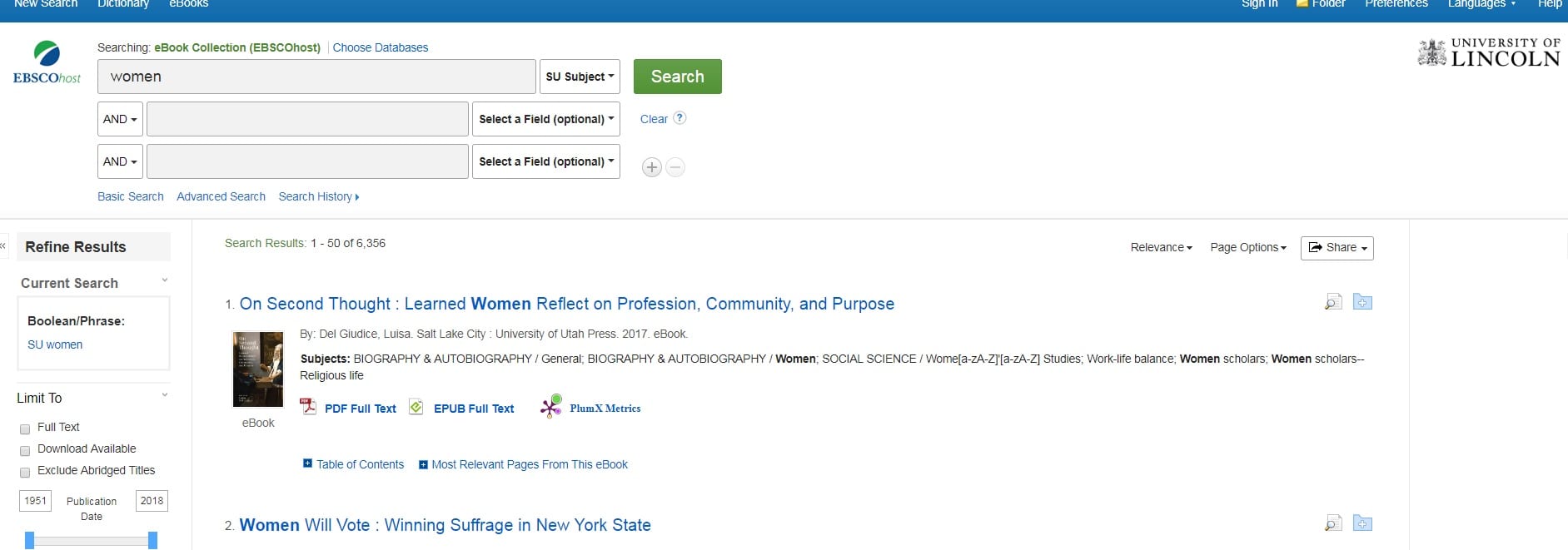
If you know you are looking for a specific theme having to do with women’s history or women’s writing the Cambridge Companions can help you find out more about your subject. Below we’ve spotlighted the Cambridge Companion to Modernist Women Writers:
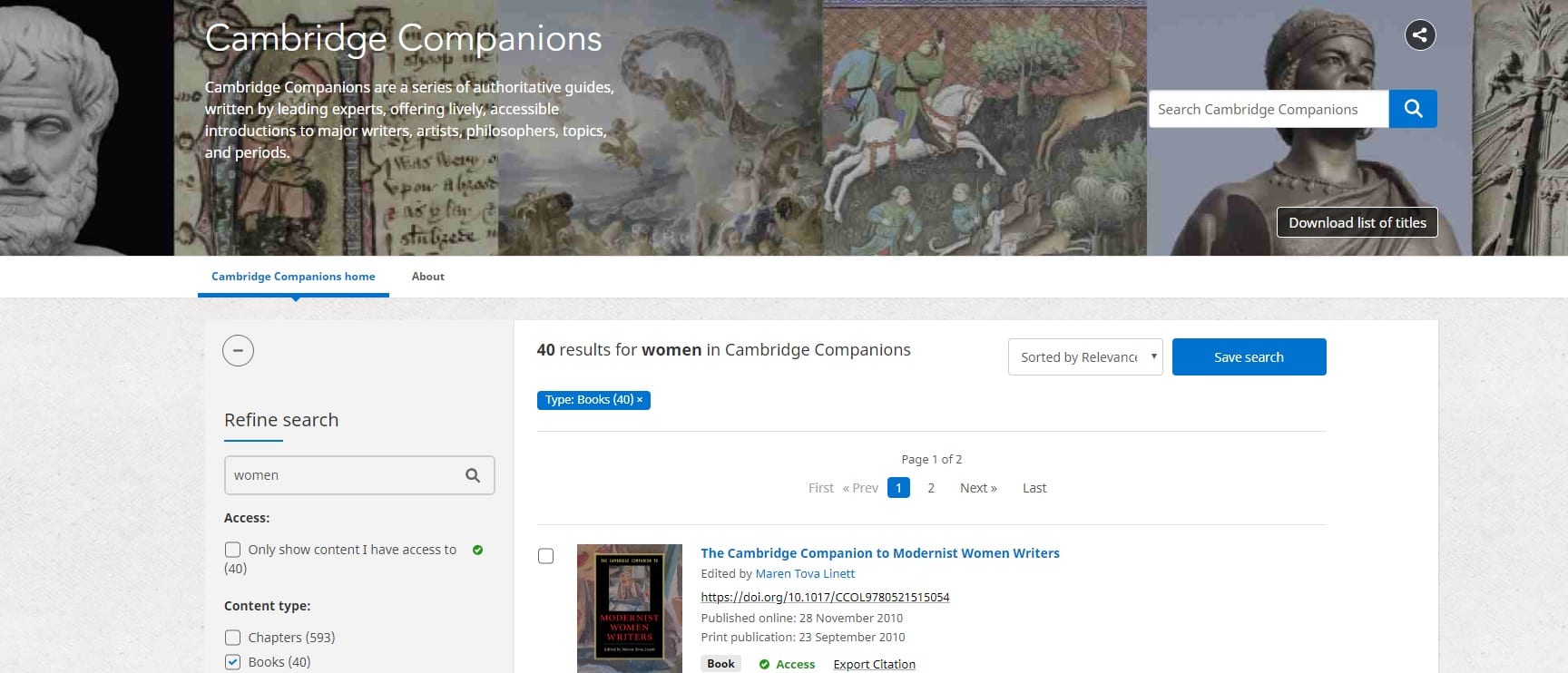
Last but not least, it’s worth looking for open access e-books too. Open access means that a book, journal, or article is freely available online for anyone to access. Some of these books are recently published academic books; others are books which have gone out of copyright. Particularly if you are working on women’s history in the nineteenth and early twentieth century, these websites can be wonderful resources for primary texts!
Recent academic books can be found at the Directory of Open Access Books (DOAB) and the OAPEN Library.
Out of copyright books can be found at Project Guttenberg and Archive.org
Lastly, if you are struggling to find information on about a particular topic having to do with women’s lives past or present, please don’t hesitate to get in touch with your academic subject librarian. We are here to help you find the information you’re looking for!